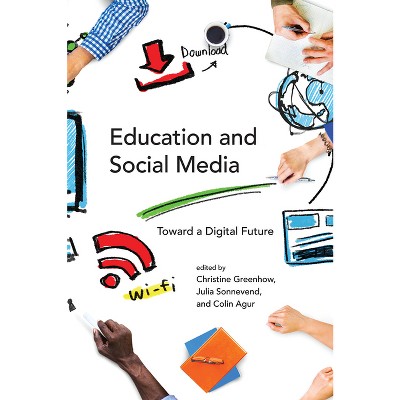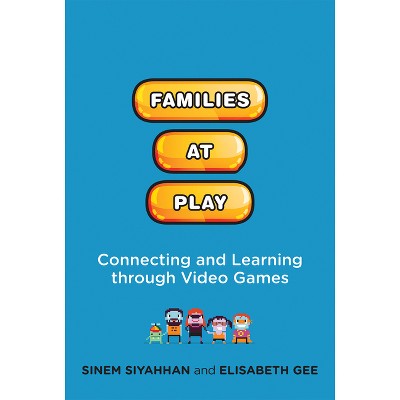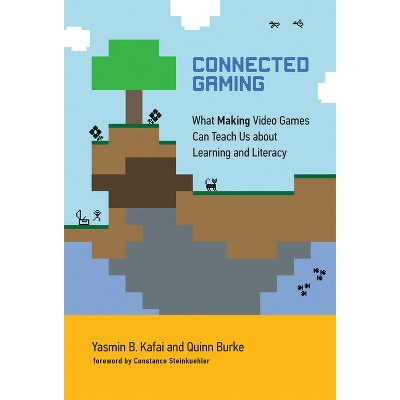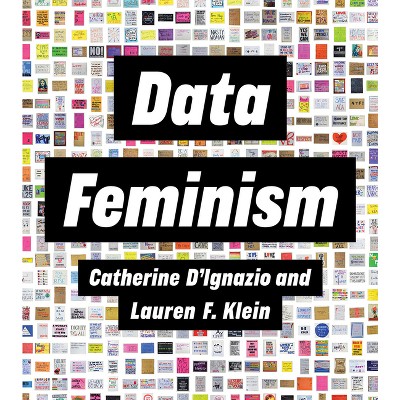Sponsored

Disconnected - (The John D. and Catherine T. MacArthur Foundation Digital Media and Learning) by Carrie James (Paperback)
In Stock
Sponsored
About this item
Highlights
- How young people think about the moral and ethical dilemmas they encounter when they share and use online content and participate in online communities.Fresh from a party, a teen posts a photo on Facebook of a friend drinking a beer.
- About the Author: Carrie James is a sociologist and Principal Investigator at Project Zero at the Harvard Graduate School of Education.
- 198 Pages
- Social Science, Media Studies
- Series Name: The John D. and Catherine T. MacArthur Foundation Digital Media and Learning
Description
About the Book
How young people think about the moral and ethical dilemmas they encounter when they share and use online content and participate in online communities.Book Synopsis
How young people think about the moral and ethical dilemmas they encounter when they share and use online content and participate in online communities.Fresh from a party, a teen posts a photo on Facebook of a friend drinking a beer. A college student repurposes an article from Wikipedia for a paper. A group of players in a multiplayer online game routinely cheat new players by selling them worthless virtual accessories for high prices. In Disconnected, Carrie James examines how young people and the adults in their lives think about these sorts of online dilemmas, describing ethical blind spots and disconnects.
Drawing on extensive interviews with young people between the ages of 10 and 25, James describes the nature of their thinking about privacy, property, and participation online. She identifies three ways that young people approach online activities. A teen might practice self-focused thinking, concerned mostly about consequences for herself; moral thinking, concerned about the consequences for people he knows; or ethical thinking, concerned about unknown individuals and larger communities. James finds, among other things, that youth are often blind to moral or ethical concerns about privacy; that attitudes toward property range from "what's theirs is theirs" to "free for all"; that hostile speech can be met with a belief that online content is "just a joke"; and that adults who are consulted about such dilemmas often emphasize personal safety issues over online ethics and citizenship.
Considering ways to address the digital ethics gap, James offers a vision of conscientious connectivity, which involves ethical thinking skills but, perhaps more important, is marked by sensitivity to the dilemmas posed by online life, a motivation to wrestle with them, and a sense of moral agency that supports socially positive online actions.
Review Quotes
American university presses have filled their lists exposing the 'threat' of new media. But what renders this short book superior to the usual 'young people are out of our control' diatribe is its focus on the ethics of online participation.--Times Higher Education--
Disconnected: Youth, New Media, and the Ethics Gap is an enlightening read, not only for its analysis of online decision making but also for its revelation of what youth have (and haven't) learned from the adults in their lives prior to making those decisions. James's work is relevant for any parent, teacher, graduate student, and professor who has ever wondered, in response to a young person's ethically questionable decision online, What were they thinking? Upon reading Disconnected, however, well-meaning adults will realize that the question they should ask: What are we teaching? After all, the so-called digital natives were born into a participatory culture. Their predecessors should be willing to inform them of and guide them with principles of ethical participation.
--Nancy Clare Morgan, Journal of Digital and Media Literacy--About the Author
Carrie James is a sociologist and Principal Investigator at Project Zero at the Harvard Graduate School of Education. She was codirector (with Howard Gardner) of the Good Play Project, which collected the data that inform Disconnected. Henry Jenkins is Provost's Professor of Communication, Journalism and Cinematic Arts at the Annenberg School for Communication, University of Southern California. He is the coeditor of From Barbie to Mortal Kombat: Gender and Computer Games (MIT Press, 1998).Shipping details
Return details
Frequently bought together












